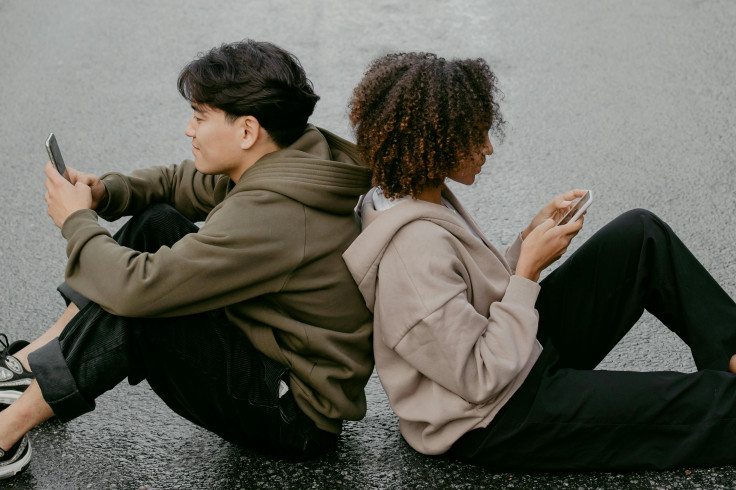iPhones Out, BlackBerrys In: Gen-Z Turns to Dumbphones in Bid to Break Free From Tech Addiction
For Gen Z, this ironic trend, is a cheaper path to peace of mind

In a surprising shift, a new trend is emerging among Gen Z: ditching their feature-rich smartphones for simpler, less distracting 'dumbphones.'
This move isn't about nostalgia; it's a deliberate step by young people to reclaim their focus and break free from the constant pull of digital life.
Many young people are trying to reconnect with the world around them. Their chosen method for this shift?
'Dumbphones' are reminiscent of the BlackBerrys that were popular during the millennial era.
The Retro Revival
It's quite ironic, however, that Gen Z is using social media—a platform that these simpler phones don't even support—to spread awareness of their move. A clear trend has been surfacing for months now: Young individuals, from their late teens to their mid-twenties, are showing a renewed interest in 'retro' technology, including Walkmans, iPods, and digital cameras.
Notably, this latest Y2K craze is utterly baffling to older generations. On TikTok, a quick search for 'Blackberry' brings up countless videos of Gen Z users. These clips show them either buying old BlackBerry handsets from sites like eBay or unearthing them from their parents' closets.
They then adorn them with rhinestones and keychains, proudly displaying the satisfyingly clicky, ASMR-worthy keyboards. For many, this BlackBerry trend simply extends the core of the ongoing 2000s nostalgia. This era was defined by popular aesthetics such as Britney Spears-inspired McBling, cyberfuturism, and Frutiger Aero.
'We've come full circle,' is a sentiment echoed in dozens of comments found on posts by TikTok content creators, such as @notchonnie, who uses her platform to showcase her extensive retro tech collection.
'I'm so sick of Apple, I would give up just about everything for a BlackBerry,' one user declared. Commenters also shared how they'd searched platforms like Facebook Marketplace, eBay, and Back Market, hoping to find BlackBerry phones to replace their current smartphones.
Breaking the Digital Chains
For just a few hundred pounds, these Gen Z's, tired of constant digital demands, find a sense of calm. This choice, however, often puzzles older generations. They certainly remember the unreliable service, tiny keypads, and complicated ways of using these old devices.
Compared to the cost of a new iPhone, which can now easily exceed up to $70 (£51.99) a month, and unlimited data plans that often reach seventy pounds a month, the BlackBerry is seen as an obvious choice for younger generations.
This burgeoning anti-smartphone movement also offers many genuine opportunities to reconnect with the offline world and to become more mindful of what they consume digitally. Pascal Forget, a tech columnist in Montreal, conveyed this perspective to CBC News, observing: 'The smartphone is not a source of enjoyment anymore.'
'It used to be fun, but now [people are] addicted to it, so they want to go back to simpler times using a simpler device,' Forget noted. 'These are supposed to be the best moments of our life, but you look around, and people are scrolling,' Sammy Palazzolo, a TikTok content creator who uses a flip phone part-time, told USA Today.
Reclaiming Real Life
Despite being raised in the digital era, Generation Z and older members of Generation Alpha are starting to notice a pervasive reality: almost everyone, everywhere, seems perpetually engrossed by their phones.
A 2024 study from the Pew Research Centre highlights a notable change: almost fifty per cent of teenagers today describe themselves as being online 'almost constantly'. This is a considerable jump from ten years earlier when only twenty-four per cent of adolescents reported the same.
Some individuals have even reported experiencing the phantom sensation of a smartphone notification, while others admit that pressing the 'on' button has become nothing short of an automatic reflex.
'It just basically created this pattern where I was anxious, and so I'd open my smartphone, and then I would hate myself for opening my smartphone, which made me more anxious,' Charlie Fisher, a 20-year-old college student, told USA Today.
Is Simpler the New Smart?
To help with his digital detox, Fisher swapped his iPhone for a flip phone, and he has not regretted the change. 'I've been seeing things more like when I was a kid,' Fisher explained, shedding light on his recently discovered phone-free lifestyle.
'You really see things for how they are in the physical world, and your emotions are really attached to that,' he added. Beyond their lower cost, flip phones and 2000s-era tech, such as the BlackBerry, are believed by Gen Z to encourage more meaningful time with loved ones, foster new hobbies away from endless scrolling and binge-watching, and help achieve a better work-life balance.
This naturally leads to a compelling question: could these young people truly be onto something significant?
© Copyright IBTimes 2025. All rights reserved.





















